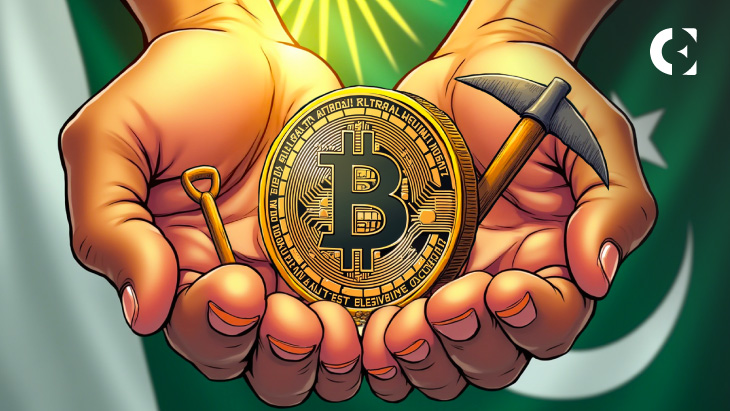- IMF warns Pakistan over Bitcoin reserve plans, questioning legality and electricity use.
- Pakistan’s Bitcoin integration plans mirror El Salvador’s crypto push, raising concerns.
- The outcome of the IMF discussions will decide Pakistan’s future in digital asset adoption.
The International Monetary Fund (IMF) is concerned about Pakistan’s recent plan to hold Bitcoin as a long-term investment. The Bitcoin Vegas 2025 conference was the first time the country officially revealed its strategic Bitcoin reserve. This is seen as a significant move for Pakistan in the digital finance sector, although it has raised questions from the IMF. Many have begun discussing if this is the start of “El Salvador 2.0” for Pakistan.
The government is investing significant resources in supporting the digital asset industry. Yet, the IMF is concerned about these decisions, especially regarding whether cryptocurrencies are legal and how the power requirements for mining are handled.
IMF Seeks Clarity on Pakistan’s BTC Plans Amid Energy Crisis
The issues have not been fully explained by Pakistan, particularly since the country continues to experience ongoing energy shortages. The International Monetary Fund expresses concern that the government’s solutions may make the power shortage worse. The IMF must seek an urgent explanation from Pakistan’s Finance Ministry regarding how electricity used in mining and digital businesses will be controlled.
The main problem with cryptocurrencies in Pakistan is their unclear legal status. Although the country is working on digital integration, cryptocurrencies are still not officially recognized. The IMF noted that the government has not established official guidelines for digital assets. There has been no definite response to the IMF’s worries about power tariffs and resources.
Although security is a concern, Pakistan continues pushing ahead with its plan for digital finance. This initiative relies greatly on the Pakistan Digital Asset Authority (PDAA). Crypto businesses and investors must now comply with the regulations outlined in the PDAA, which was approved in May. Pakistan formed a National Crypto Council in early 2025 to monitor and regulate digital assets.
Pakistan’s Digital Asset Ambitions
Another important aspect of the plan is to utilize excess electricity for Bitcoin mining. This step forms part of the plan to bring digital assets into the core of the national economy. The government aims to utilize the excess energy by powering Bitcoin mining and data centers nationwide.
In April 2025, Changpeng Zhao, founder of Binance, became an adviser to the new National Crypto Council. Zhao is expected to oversee the development of crypto regulations, the enhancement of blockchain infrastructure, and the utilization of digital assets in the country. The government is demonstrating its intention to engage with the digital asset sector by appointing a well-known figure in the industry.
Even though the government is aiming high, the IMF’s opinion makes people doubt whether the plans are doable. Pakistan has followed El Salvador’s model of adopting Bitcoin, but concerns from the IMF could hinder its ambitions. The conclusions of the IMF’s discussions with Pakistan could decide the fate of Pakistan’s plans for Bitcoin reserves.
Related: Binance and Pakistan IT Ministry Roll Out Blockchain Education Program for 80,000 Students
Disclaimer: The information presented in this article is for informational and educational purposes only. The article does not constitute financial advice or advice of any kind. Coin Edition is not responsible for any losses incurred as a result of the utilization of content, products, or services mentioned. Readers are advised to exercise caution before taking any action related to the company.









